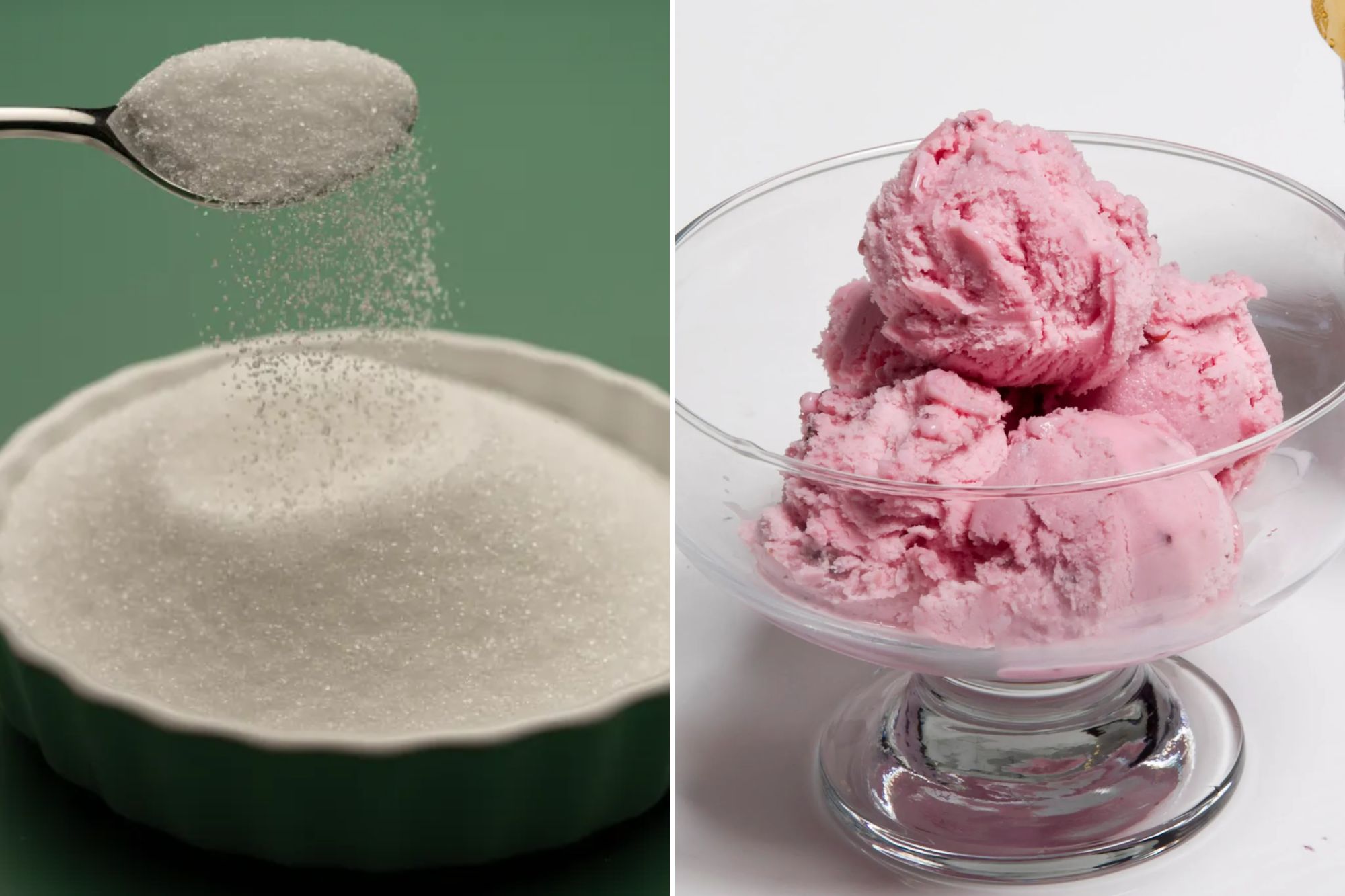
There is nothing sweet about it.
A new study suggests that a well -known sugar substitute found in everything, from protein rods to low -calorie ice cream may be confused with blood vessels in your brain.
It is the last red flag in a growing research body that connects the common ingredient with a higher risk of stroke and other serious cardiovascular problems.
Erythritol is a type of carbohydrate called sugar alcohol. Of course it is found in small quantities in fruits and vegetables, and our bodies even produce it in small doses during normal metabolism, according to the Mayo Clinic.
But the added version of foods is produced commercially by fermenting corn-and appears in tonnes of “these”, “diabetes” and “zero sugar” products.
With only 6% of regular sugar calories and about 70% of sweetness, Eritritol is traded as a smart choice for weight control. It also does not increase blood sugar or insulin levels, and even helps to fight tooth decay aiming at the bacteria that cause the cavity.
“We decided to study Eritritol because it is widely marketed and consumed as a ‘safe’ alternative of sugar,” Auburn Berry, the author of the main study and a graduate student at the University of Colorado Boulder, told women’s health.
“However, developing evidence has linked erytritol to an increased risk of cardiovascular and cerebrovascular events, especially ischemic stroke,” she added – mentioning how exactly the damage is not fully understood so far.
To get a clearer appearance, the researchers exposed the cells of the human brain blood vessels to an erythritol solution containing about 30 grams – approximately the amount in a can of artificially sweetened soda.
Within just three hours, they saw worrying effects: excellent oxidative stress from 75%, which can damage both cells and near tissues.
Cells also produced 20% less nitric oxide, a key ingredient that helps blood vessels rest. Erythritol also triggered more constituent vessel compounds and reduced a protein that helps disrupt clotting.
The researchers finished the sweetener «potentially contributes to [an] Increased risk of ischemic stroke, “in which blood flow to the brain is blocked.
CDC estimates that nearly 9 out of 10 strokes are of this kind. Ischemic shocks can cause permanent brain damage or death, and are a leading cause of long -term disability in the US
“This study offers a valuable overview of potential erythritol risks to the health of brain blood vessels, especially for people seeking to improve or protect their vascular and cognitive function,” told Dr. Thomas M. Holland, a scientist who was not involved in the study, said today.
“Findings challenge Eritritol’s perception as a harmless sugar substitute and underline the need for moderation, especially in those with risk factors for vascular disease,” he added.
The study was conducted in a lab, not in humans, so more research is needed to understand exactly how it plays in real life. However, the findings echo the preliminary research that have raised serious concerns.
In 2023, researchers at the Cleveland Clinic studied more than 4,000 adults and found them with the highest level of erytritol in their blood were more likely to suffer heart attacks or strokes within the next three years.
And in 2024, the same group of scientists discovered that erythritol consumption made the platelets of contagious participants, potentially increasing the risk of blood clots.
“It is very worrying,” said Dr. Stanley Hazan, a specialist in cardiovascular preventive medicine and lead author of studies 2023 and 2024.
“We know that people who buy these products are trying to do something good for their health by eating foods that are better promoted for them. But in reality, they can inadvertently increase their risk for harm,” he told Cleveland clinic.
The FDA considers erythritol safe, mainly because it naturally occurs in small quantities. But as a food supplement, it is used in concentrations up to 1,000 times higher than that found in our fruit or bodies.
“Erythritol that happens naturally is not the problem,” Hazan explained. “It is the high dose of erytritol from the packaged foods we are seeing have very harmful effects.”
To make things strangest, Erythritol is not always easy to see. It falls under the wider category of “sugar alcohols” on food labels, which are not required to name specific ingredients.
Still, there is data: Erythritol is often hidden in products labeled “safe”, “safe diabetes”, “without sugar”, “low sugar”, “naturally sweetened” or “zero calorie”.
Also a major ingredient in popular sugar substitutes such as Truvia and Splenda Naturals Stevia-and often turns into ice cream, gum, gum, candy, ripe goods, protein rods and even fruit spread.
#Sweetener #passing #popular #ice #cream #increase #risk #hitting
Image Source : nypost.com